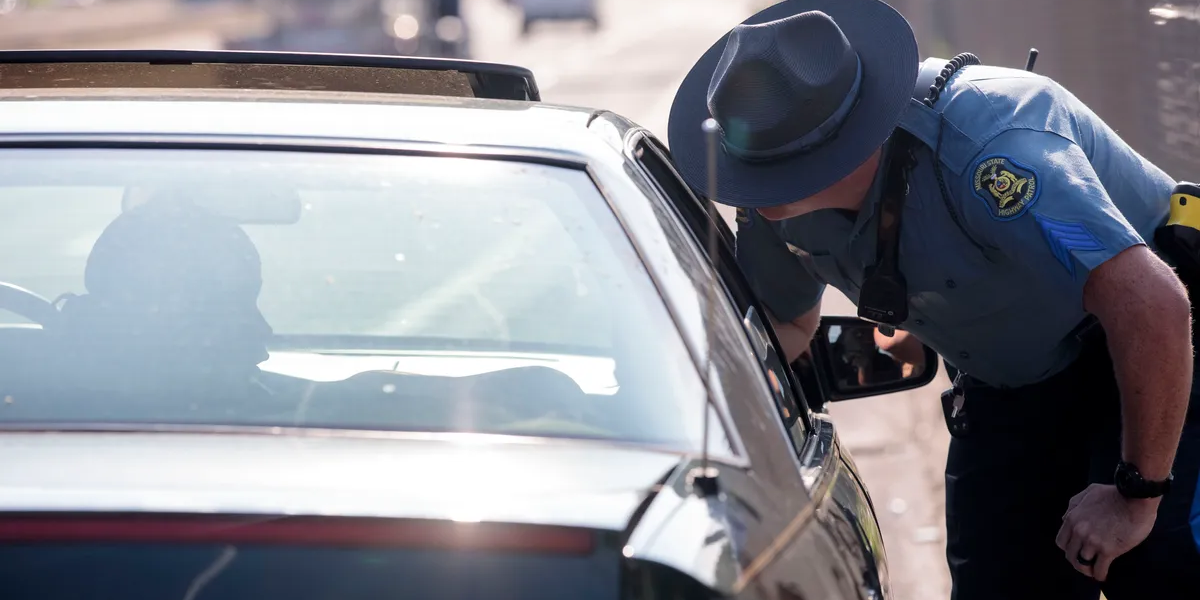There is a significant quantity of personal information stored on your mobile phone, which makes protecting its privacy a significant legal concern. In the state of New York, the authorities with the authority to examine your phone during a traffic stop are subject to stringent restrictions imposed by both state and federal law. If you are asked to hand over your device, the following is a detailed explanation of your rights and what you should do in response to the request.
Warrant Requirement, According to the Law
- In most cases, the police will want a warrant in order to search your phone. Courts, including the Supreme Court of the United States, have found that it is unconstitutional to search a cell phone without a warrant in the majority of cases. The Fourth Amendment protects you from being subjected to unreasonable searches and seizures.
- Key Precedent: The Supreme Court ruled in Riley v. California (2014) that in order for law enforcement to search the digital material stored on a cell phone that was seized after an arrest, they are required to obtain a warrant, with the exception of extremely rare emergency instances.
The Major Exception to Consent is
- Your phone may be searched by the police if you grant them permission to do so. You might be asked by law enforcement, “Would it be okay if I looked through your phone?” By responding in the affirmative, you are relinquishing your rights under the Fourth Amendment to that search.
- You have the authority to decline the offer. In a polite manner, you should state, “I do not consent to a search of my phone.” Neither the unlocking of your device nor the provision of your passcode is required of you.
A Few Exceptions to the Warrant Rule
The following are some of the restricted scenarios in which the police may search your phone without a warrant or with your previous consent:
- Exigent Circumstances: If law enforcement officers think that there is an immediate risk to life or that there is a risk of evidence being destroyed, they have the authority to search without following a warrant. These instances are extremely uncommon and require justification.
- Parole or Probation: As part of your terms of parole or probation, you may be required to consent to searches without a warrant.
- Plain View: If incriminating evidence is visible on the screen of your phone (for example, a notice for a message), the authorities may be able to use such information because it is easily accessible.
What to Do in the Event That the Police Request to Search Your Phone
- Discreetly decline to give consent. It should be made abundantly clear that “I do not consent to a search of my phone.”
- Your phone should not be unlocked, and you should not reveal your passcode. There is no legal requirement for you to act in this manner.
- There should be no muscular resistance. Do not intervene with the cops if they continue any further. Assert your objection and seek legal counsel afterward.
When Can NY Police Search Your Phone During a Traffic Stop?
| Scenario | Can Police Search Without Warrant? | Notes |
|---|---|---|
| You give consent | Yes | Always voluntary; you can refuse |
| Police have a warrant | Yes | Warrant must specify the device |
| Exigent circumstances | Rarely | Must be immediate threat or risk |
| Routine traffic stop, no consent | No | Protected by Fourth Amendment |
Your Rights at a Glance
- You are not required to provide responses to questions regarding the contents of your phone.
- It is possible to decline to consent to a search.
- The unlocking of your phone and the provision of your passcode are not required of you.
- Refusing to allow the police to inspect your phone does not result in an arrest or a ticket.
In the event that the police conduct an unlawful search of your phone, the evidence may be thrown out in court.
What Can You Do If the Police Take Your Phone?
The contents of your phone cannot be accessed by the police without a warrant, even if they take your phone (with the exception of extremely unusual emergencies). They are permitted to keep the device while they are awaiting a warrant, but they are not permitted to lawfully search it until the court gives its clearance.
In the state of New York, law enforcement officers need either your permission or a warrant in order to inspect your phone during a traffic stop. The legislation provides a high level of protection for your digital privacy. Always exercise your rights in a courteous manner, and if you believe that your rights have been violated, you should seek the advice of an attorney.


 by
by 

